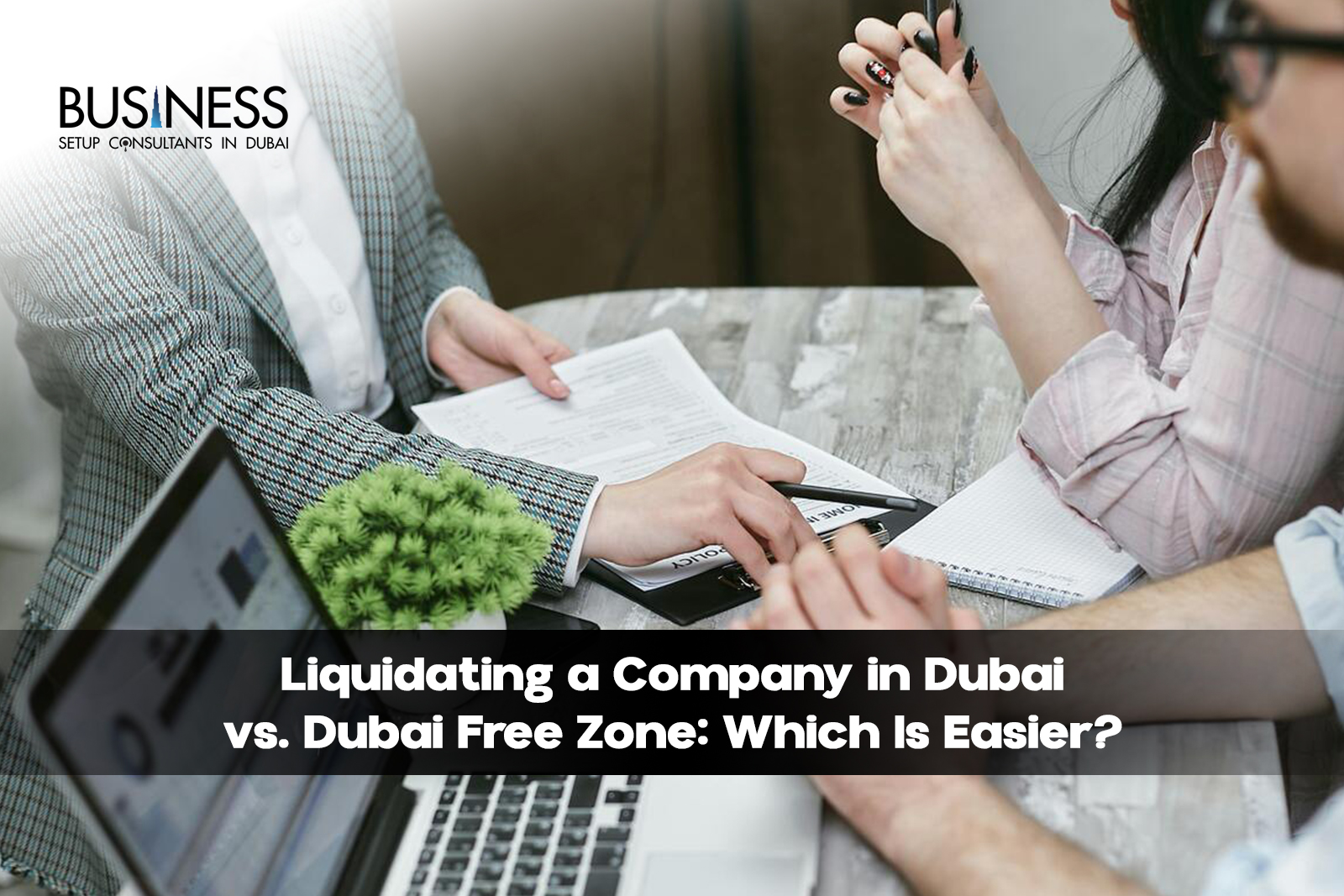Tax implications of doing business in Dubai play a crucial role for any company looking to establish itself in the region. Dubai, a thriving business hub in the United Arab Emirates (UAE), is widely regarded as a prime location for setting up businesses. With its strategic position, world-class infrastructure, and business-friendly environment, it continues to attract entrepreneurs and companies from all over the world.

Tax implications of doing business in Dubai
Dubai has a highly attractive tax system, characterized by low taxes and various incentives for businesses. As part of the UAE, Dubai follows a business-friendly tax regime that allows companies to operate with minimal tax burdens. Let’s take a look at some key aspects of the tax system.
- Corporate Tax
The UAE introduced a federal corporate tax for the first time in 2019. Prior to this, businesses in Dubai were not subject to corporate tax, making it a tax haven for many years. However, the introduction of corporate tax has significantly impacted the business landscape.
- Corporate tax rate: The corporate tax rate is 9% on profits exceeding AED 375,000 (about USD 102,000). This makes Dubai’s corporate tax rate relatively low compared to other global financial centers.
- Tax exemptions: Certain sectors, such as oil and gas, and foreign-owned companies in designated free zones, may still benefit from tax exemptions or lower rates.
Despite the introduction of corporate tax, Dubai continues to offer attractive tax incentives for companies, especially those in specific industries such as technology, trade, and logistics.
- Value-Added Tax (VAT)
Another significant tax in Dubai is the Value-Added Tax (VAT), which was introduced in January 2018. The VAT rate in Dubai is set at 5%, which is lower than many other countries. This makes Dubai an appealing destination for businesses involved in the retail, hospitality, and service sectors.
- VAT registration: Businesses with annual taxable supplies exceeding AED 375,000 must register for VAT, while those with supplies below this threshold may opt for voluntary registration.
- VAT refund: Some businesses may be eligible to claim back VAT on their purchases and expenses, depending on their industry and VAT registration status.
While VAT is an additional cost for businesses, its low rate in comparison to other countries makes it manageable for companies operating in Dubai.
- Personal Income Tax
One of the most significant benefits of doing business in Dubai is the absence of personal income tax. There is no income tax on individuals, which means employees can retain their full salaries. This is an attractive incentive for foreign workers and executives.
- Expatriate workers: The majority of Dubai’s workforce is made up of expatriates, and the absence of personal income tax helps to make the city an even more appealing destination for global talent.
This policy helps businesses in Dubai to attract and retain skilled employees without the concern of high personal income taxes, giving businesses a competitive advantage when recruiting top talent.
- Free Zones and Tax Incentives
Dubai is home to numerous free zones, which provide special benefits to companies setting up in these areas. These zones are designed to attract foreign investment by offering tax incentives, making them an attractive option for businesses.
- Tax exemptions: Companies established in most free zones are generally exempt from corporate taxes for a period of 15-50 years.
- 100% foreign ownership: Foreign investors can own 100% of their businesses in most free zones without the need for a local sponsor.
- Customs duty exemptions: Companies in free zones benefit from customs duty exemptions on goods imported into the free zone.
These incentives make free zones an excellent choice for businesses, especially for those involved in export and import activities, technology, manufacturing, and other industries.
- Economic Substance Regulations
To comply with international tax standards and avoid being blacklisted by international organizations, the UAE has introduced economic substance regulations. These regulations require certain businesses that engage in specific activities (such as banking, insurance, investment management, etc.) to have substantial physical presence in the UAE.
- Substance requirements: Businesses must prove that they are genuinely operating within the UAE and are not simply set up for tax avoidance purposes.
- Penalties: Failing to meet these substance requirements can result in fines and penalties, so businesses need to ensure compliance with these regulations.
While economic substance regulations may create additional requirements for businesses, they help to maintain Dubai’s reputation as a legitimate business hub and ensure compliance with global tax standards.
Pro Tips for Navigating the Tax Implications of Doing Business in Dubai
- Consult with tax experts: Understanding the tax landscape in Dubai can be complex, especially for businesses unfamiliar with the region. Consulting with local tax advisors and experts can help ensure that you are compliant with all regulations and can take advantage of any available tax incentives.
- Consider free zone options: If you are a foreign investor or looking for tax exemptions, setting up a business in one of Dubai’s free zones might be the best option. Free zones offer various tax benefits and simplified business registration processes.
- Stay up-to-date on changes: Tax laws and regulations can change, so it is essential for businesses to stay informed about any updates or modifications to the tax regime in Dubai.
- Optimize VAT compliance: If your business is VAT-registered, ensure that you have robust systems in place for VAT collection, invoicing, and returns to avoid penalties and streamline your operations.
- Understand the impact of economic substance rules: Businesses engaged in activities requiring economic substance must make sure they meet the requirements to avoid penalties.
Frequently Asked Questions (FAQ)
What is the corporate tax rate for businesses in Dubai?
The corporate tax rate in Dubai is 9% on profits exceeding AED 375,000. Businesses operating in specific free zones may still benefit from tax exemptions or lower rates depending on their industry and activities.
Do businesses in Dubai need to pay personal income tax?
No, Dubai does not impose any personal income tax, making it an attractive destination for expatriates and foreign workers.
What are free zones, and how do they affect taxation for businesses?
Free zones in Dubai offer significant tax benefits, including tax exemptions for up to 50 years, 100% foreign ownership, and customs duty exemptions. These zones are designed to attract foreign investment and support business growth.
What are the tax implications of doing business in Dubai for foreign investors?
How can businesses claim VAT refunds in Dubai?
Businesses in Dubai can claim VAT refunds on eligible purchases if they are VAT-registered. Refunds are possible on certain expenses, depending on the business’s VAT registration status and industry.
Conclusion
Understanding the tax implications of doing business in Dubai is crucial for any company seeking to expand into this dynamic market. With low corporate taxes, no personal income tax, and various incentives for businesses, Dubai offers an attractive environment for global entrepreneurs and investors. By leveraging the available tax incentives and complying with the regulations, businesses can thrive and grow in this vibrant city.







